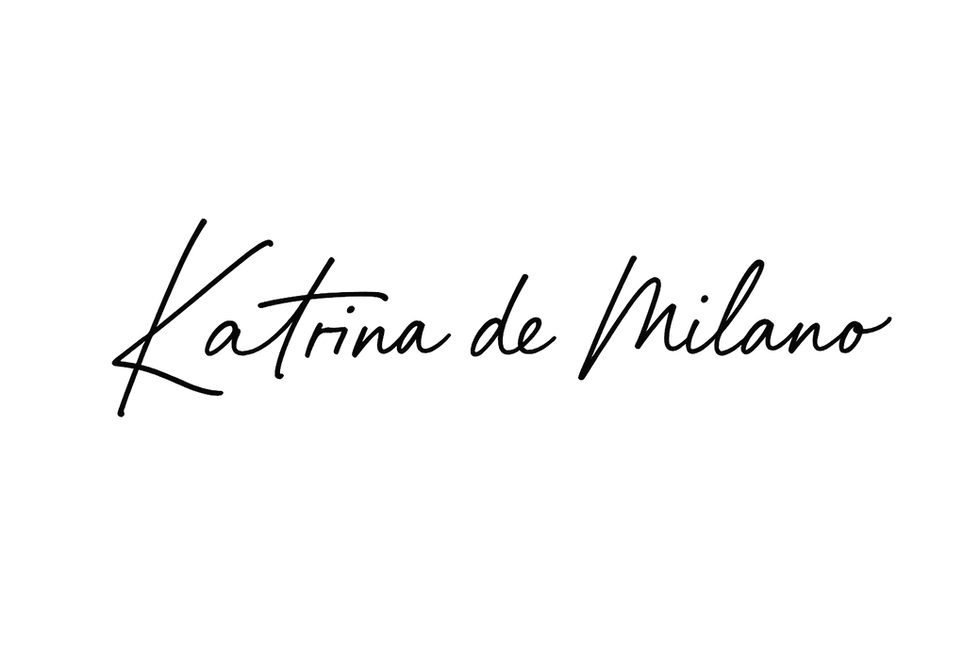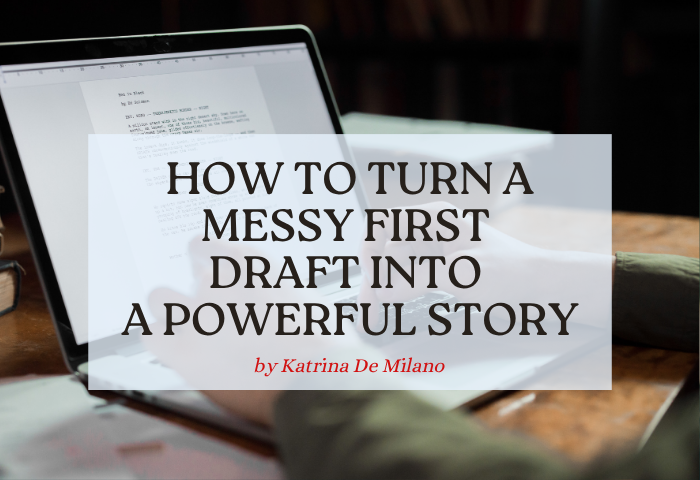🗣️ How to Find Beta Readers and Use Their Feedback Effectively
- Katrina De Milano

- 28 июн. 2025 г.
- 4 мин. чтения
Let someone else see it — before you send it out into the world.
You’ve written the words that once lived only in your head.
You’ve revised scenes, edited dialogue, trimmed what didn’t belong.
You’ve fought through fear, doubt, and the temptation to quit.
Now you’re staring at a version of your story that feels… almost finished.
And here comes the hardest step of all:
Letting someone else read it.
Sharing your writing for the first time can feel like standing under a spotlight with your soul on display.
It’s vulnerable. It’s terrifying. It’s full of questions:
What if they don’t get it? What if I missed something big? What if I’m just not good enough?
But here’s the truth that every published writer knows:
Your story gets stronger when it meets other minds.
Because writing may begin as a solitary act.
But becoming an author — that’s a conversation. A collaboration.
🤝 Find the Right Readers (Not Just Any Readers)
Not all feedback is created equal.
Some readers will offer thoughtful insight. Others will simply skim. Some might mean well but leave you more confused than before.
That’s why the who matters just as much as the what.
Seek out readers who genuinely want your story to grow. People who will be honest, but kind. Curious, but constructive.
Great feedback can come from:
A critique partner — another writer who’s walking the same road and willing to swap chapters
A trusted friend — someone who reads in your genre and understands the kind of story you’re trying to tell
A writing group — online or local, where different perspectives can offer surprising clarity
A freelance editor — if you’re ready to invest in professional insight
Beta readers — thoughtful volunteers who read your draft like a real audience and tell you what lands and what doesn’t
🎯 Start small. One or two voices can be more helpful than ten noisy opinions.
Your story is still tender at this stage — give it a safe, intentional place to grow.
📋 How to Work with Beta Readers (and Get Honest Feedback)
It’s tempting to hand over your draft and say, “Tell me what you think!” — but that almost always leads to vague or unhelpful comments.
Instead, guide your readers. Tell them what you need.
You might ask:
Were there any moments where you got confused or lost interest?
Did you feel connected to the main character? Why or why not?
Was the ending emotionally satisfying — or did something feel missing?
Did any lines of dialogue pull you out of the moment?
Were there places where the pacing dragged or rushed?
💡 Specific questions lead to specific answers — and that’s what helps you revise with clarity.
🧠 How to Receive Feedback Without Losing Your Confidence
Let’s be honest: this is the part that feels the most personal.
Hearing that something you wrote didn’t work — or worse, didn’t make sense — can sting.
But feedback is only painful when you treat it like judgment.
Instead, try to treat it like data. Like information you get to use (or not use) to strengthen your story.
Here’s how to stay grounded:
Listen first. Don’t explain, defend, or apologize — just absorb.
Sit with it. Wait at least a day before reacting or revising.
Look for patterns. If multiple people mention the same issue, it’s worth paying attention.
Trust yourself. If a note doesn’t align with your vision, it’s okay to let it go.
🛡️ You’re not looking for praise. You’re looking for perspective.
You’re still the author. You still get to choose what the story becomes.
✨ The Magic of Outside Eyes
When you’ve lived inside your story for weeks, months, or even years — you stop seeing it clearly.
Your brain fills in gaps the reader can’t.
You hear the subtext they’ll never catch.
You know what you meant — but they only see what’s on the page.
That’s where fresh eyes become your greatest gift.
A good reader can show you:
What’s working — and remind you it’s better than you thought
What’s missing — the things you didn’t even realize weren’t on the page
What readers feel as they go — not what you intended, but what actually comes through
🎉 And sometimes, what you really need is just one person to say:
“This story matters. Keep going.”
✅ Takeaway
Feedback doesn’t mean you have to change everything.
It simply gives you a better understanding of how your story is landing — and what you want to do with that knowledge.
Be open. Be curious. Be discerning.
Because the moment you invite another voice into your process, you open the door to something bigger:
Not just a book you wrote… But a story that lives between you and your readers.
💬 Your Turn
Have you ever shared your writing with someone else?
Was it terrifying, exciting — or both?
What kind of feedback helped you grow the most?
Drop your experience in the comments. Whether you’re just beginning or deep into edits, you’re not doing this alone.
Your voice matters.
And someone out there is waiting for the story you’re writing.







Комментарии